It seems that every other LinkedIn post these days is about ChatGPT and various other AI-powered tools. Many even go so far as to claim that AI has already rocked the SEO world and that the best is yet to come.
Yes, it is safe to say that AI technology has come a long way in recent months. But, is it capable of making a revolutionizing difference that will affect SEO specialists, content marketing specialists, and other industry enthusiasts?
Well, no one can give a 100% accurate answer. But, there are some things that you should keep in mind regarding SEO and how it is affected by the most popular AI-powered tool these days - ChatGPT!
Keep reading to learn more.
ChatGPT: Explained
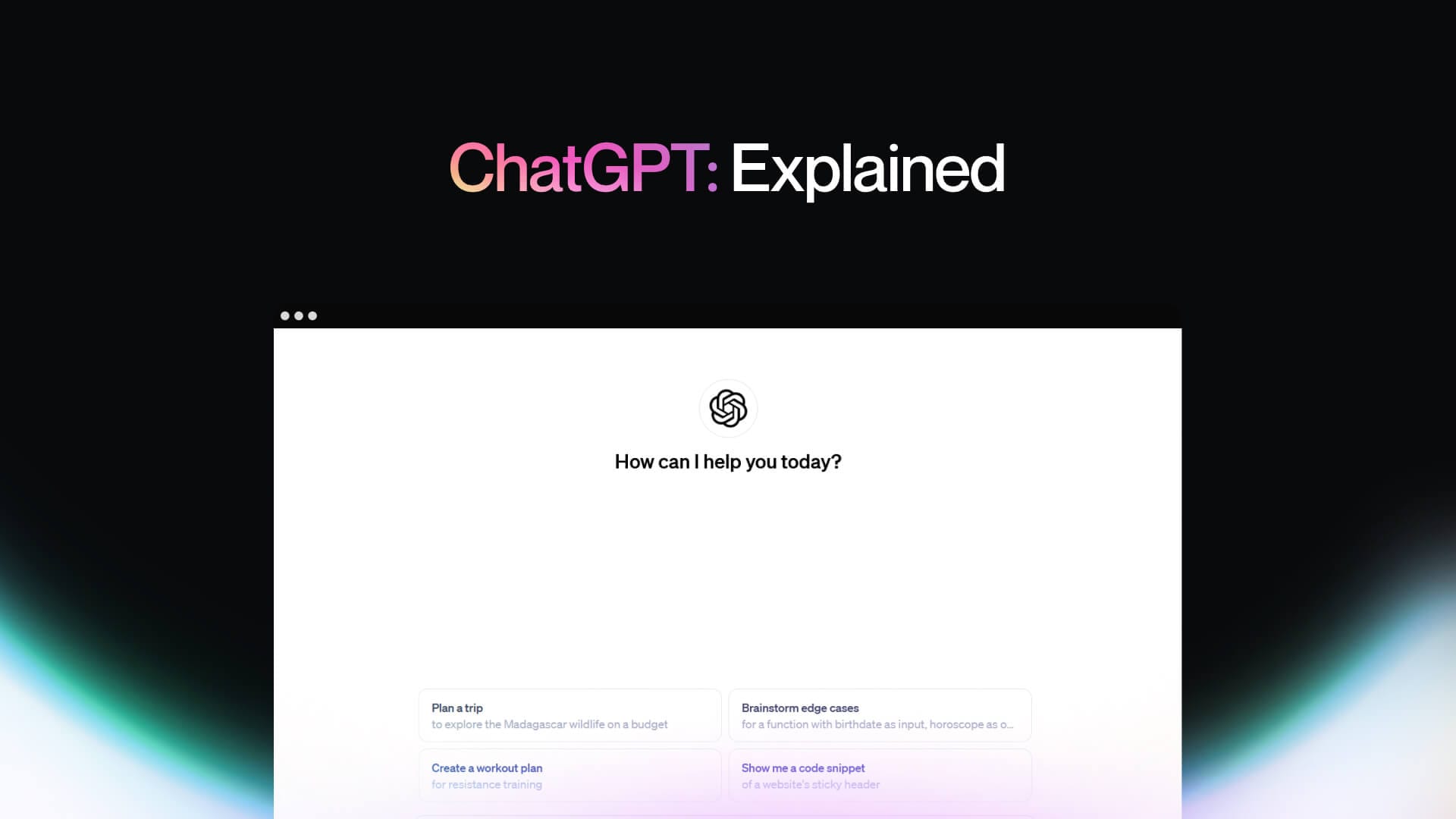
The technology behind ChatGPT is not something new that we have never seen before. Writing-based AI tools such as Jasper or GrowthBar have been here for quite some time now.
However, the gist is that no tool has caused so much fuss as ChatGPT once it was released in 2022. The virality is undeniable and its popularity is showing no signs of stopping.
Yes, ChatGPT may be similar to other AI chatbots, but it does a great job in its ability to engage in human-like conversations. It’s simulating proper interactions that rarely feel odd quite well.
ChatGPT is described as a large language learning model. This means that the tool has been trained using a huge database. Thanks to this ample amount of data, ChatGPT can anticipate the logical sequence of words in a sentence in a way that closely resembles the human way of thinking.
Also, the more data you ‘feed’ to ChatGPT, the better it becomes. That means that the more people use it, the more proficient and smarter it will become.
Its ability to learn new things and acquire knowledge in general and then later apply it in various contexts without extensive instructions is remarkable. And, it’s quite similar to how we, humans, learn new things.
That is why this tool can engage in highly human-like conversations, answer complex questions, and even craft essays on almost any subject matter out there.
Quality Content as the Key SEO Factor

Quality content can be defined as valuable content that is useful both to viewers and Google’s algorithms. Quality content translates to content that is relevant, useful, accurate, easy to understand, and engaging.
As such, it is clear that quality content is one of the most important factors of SEO. If you want to rank high, you need great content pieces.
Keep in mind that Google takes into account numerous factors when figuring out where it should rank a certain website. Google will give way to top-notch content that provides value to users and boosts the overall website authority in a given field.
So, how do GPT models fit in here?
Well, SEO enthusiasts and writers can use tools such as ChatGPT to craft better content that is focused on engagement and relevance.
For example, ChatGPT can help with the following processes:
- Keyword research;
- Content generation (experienced writers do not rely heavily on GPT models for content production);
- Content optimization;
- Topic research.
This is how AI-powered tools can help SEO professionals. It is recommended to use AI solutions to do better research and content planning. Keep in mind, however, that an AI tool is an assistant and not a replacement for a fully-fledged SEO content writer.
How ChatGPT is Changing the Game of SEO
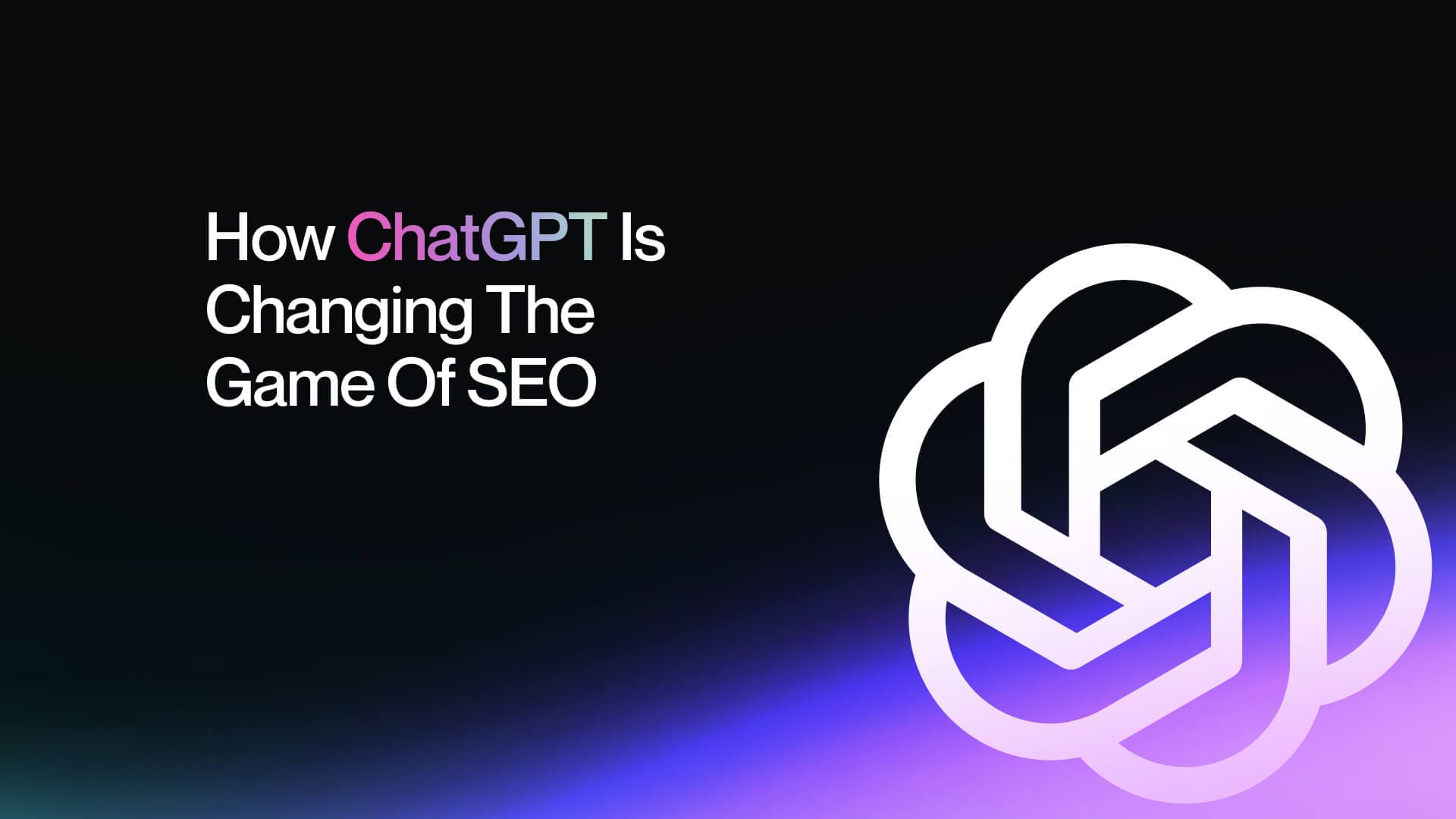
Many people believe that ChatGPT’s ability to generate content is the main reason why SEO is changing. But, that’s not exactly 100% accurate.
Bear in mind that AI-generated content can be detected. It tends to be repetitive and it often produces a lot of fluff. Also, it is fairly easy to spot even without specialized content marketing or SEO tools.
Understanding and predicting, on the other hand, how people look for information online is the most significant challenge that GPT models can help you overcome in SEO. That is the key ‘feature’ that is reshaping the way people go on about search engine optimization.
Search engine algorithms, such as Google's, are designed to provide the most relevant and useful results for users' queries, but this task can be challenging when people use complex and multifaceted language to express their needs.
ChatGPT, with its natural language processing abilities, has the potential to enhance search algorithms' effectiveness and accuracy.
By comprehending and generating responses based on a user's query, ChatGPT could help search engines better understand the intent behind the search and provide more precise and helpful results.
ChatGPT's ability to provide significantly better search results than Google and enhance the user experience on websites could potentially disrupt SEO and Google's dominant position in the market.
This is something huge that a lot of people fail to see. The experienced SEO experts, however, are well aware of this and they are not afraid to adjust.
Best Practices for Using ChatGPT for SEO
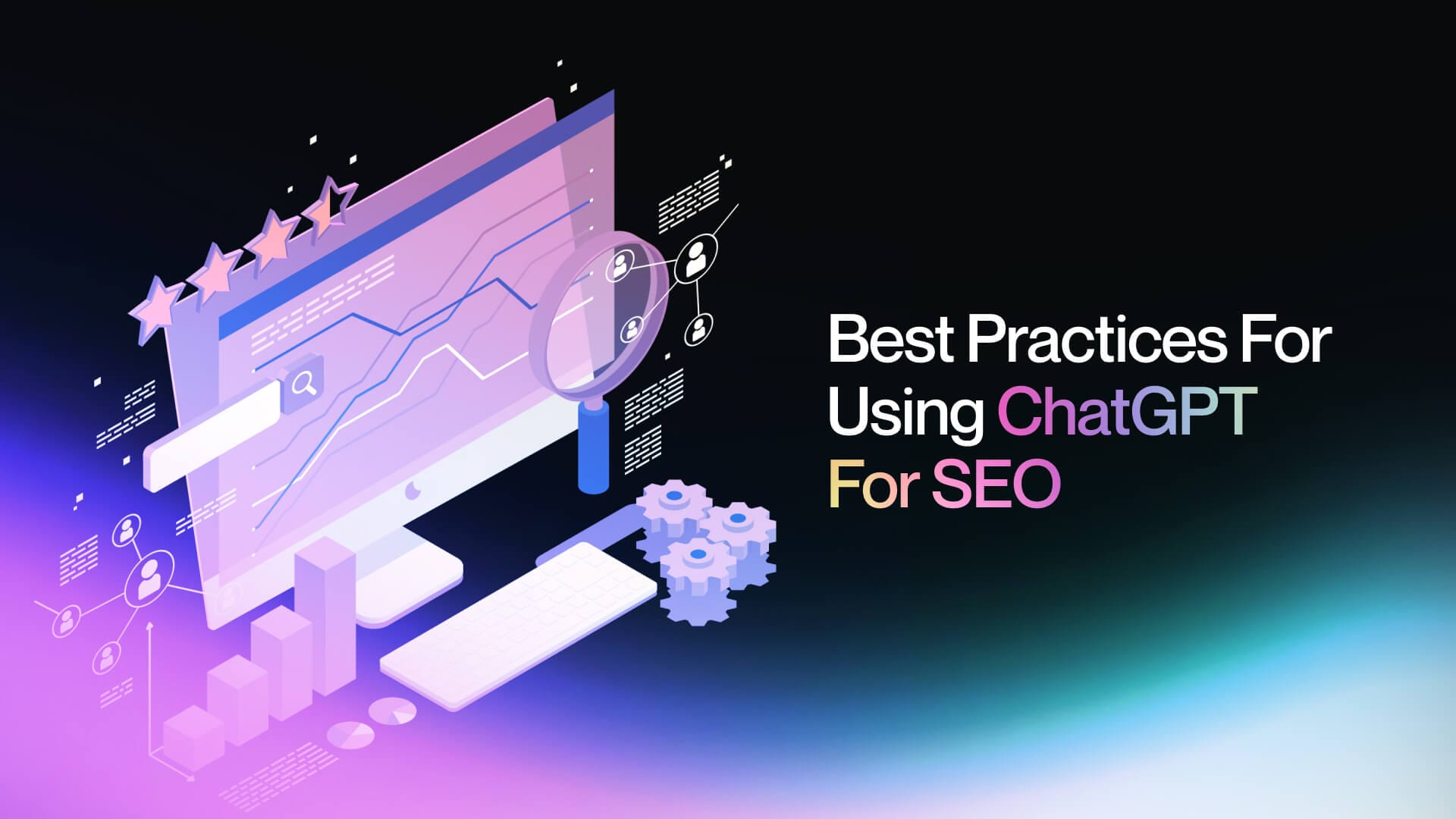
It is worth noting that you should tread carefully. No expert can give you a rock-solid formula that you can rely on for AI-powered tools to help you with SEO. There are no guarantees.
However, there are a few proven practices that you should keep in mind if you decide to use tools such as ChatGPT to help you with your SEO efforts:
- ChatGPT has its limitations too: While GPT can generate content that is both relevant and engaging, it's not perfect, and the output may require editing and refining. It's essential to have a clear understanding of what GPT can and cannot do to ensure it's used effectively.
- Do not use it to generate the content you will publish anywhere: Consider using ChatGPT to generate topic ideas, headlines, or outlines. The tool can also help you with drafts that you should later refine. But, use it to generate only some content pieces you were planning to write. ChatGPT is not a free-of-charge replacement for a great human writer.
- ChatGPT should be your assistant, it shouldn’t do your job for you: Remember, GPT content should complement your content. It shouldn’t be the other way around.
- If you decide to use GPT models to help you out, you should review your content performance metrics regularly and adjust if and when necessary.
Remember, the bottom line is that you need to know how to use this tool to help you with relevancy and value. It is not wise to think that this tool will replace an actual SEO professional.
ChatGPT for SEO: Potential Shortcomings
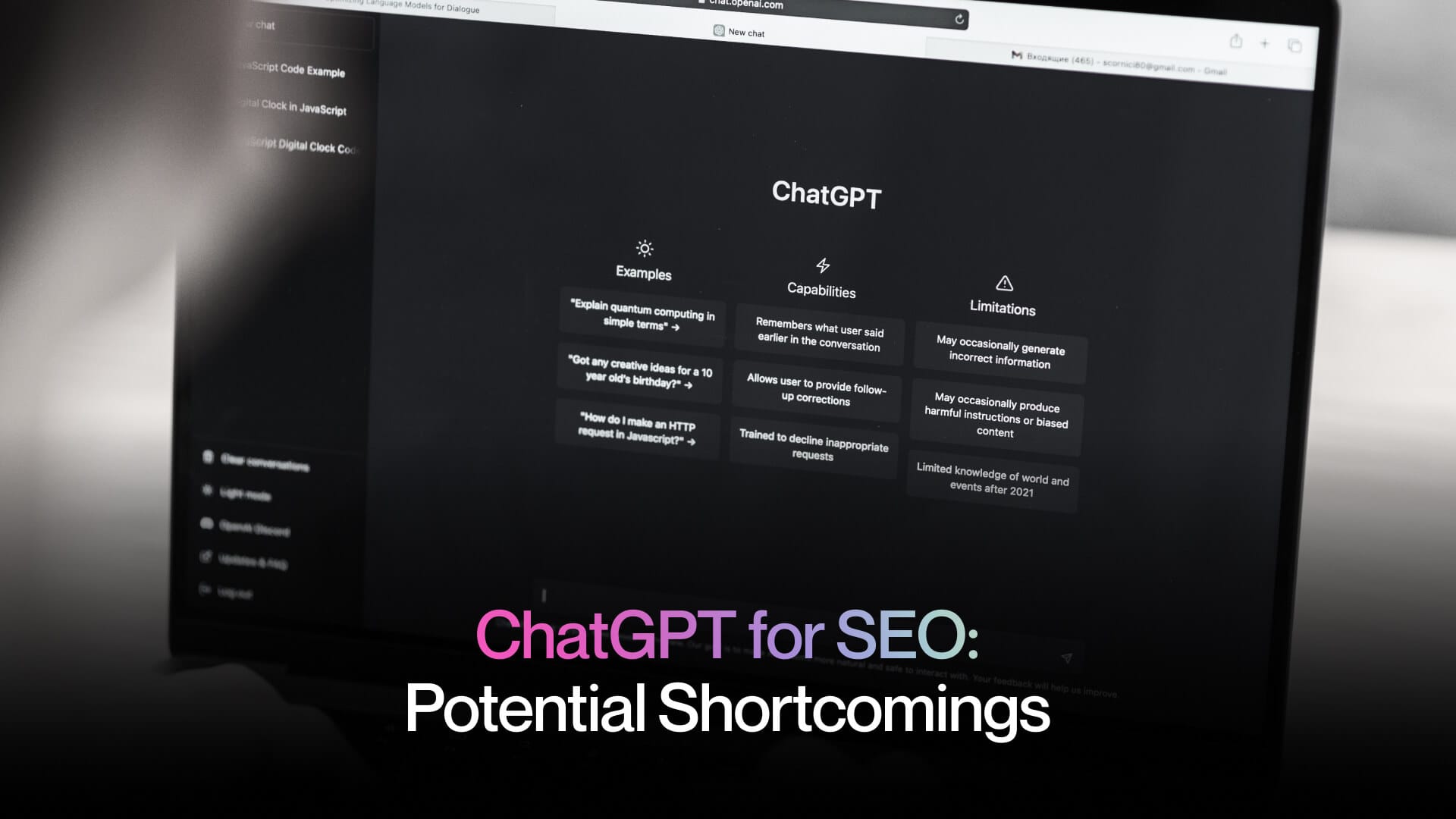
GPT models have what it takes to make huge changes to SEO. But, you should also know that there are potential shortcomings and ethical considerations to keep in mind.
For example, one potential concern is the potential for bias in GPT-generated content. GPT learns from the data it is trained on, and if that data contains biases or inaccuracies, those biases can be reflected in the generated content.
That’s why it is important to clearly indicate which content is generated by an AI tool and which is written by humans. That is the only way to ensure a degree of accountability and transparency.
There are also ethical considerations around the use of GPT in content marketing.
For example, if GPT is used to generate reviews or testimonials, it could be considered unethical if those reviews are not based on real experiences or are manipulated in some way.
It's essential to consider the potential consequences of using GPT in different contexts and ensure that its use aligns with ethical principles and values.
Final Thoughts
All in all, GPT models are getting better and better and there is no doubt that the impact these have on SEO will become even more significant.
But, that doesn’t mean that SEO professionals can rest assured that an AI tool can do their job for them. GPT models will just make search engine optimization faster and more efficient. That’s one of the things they are designed to do.
Stay up to date with the latest trends in this sphere if you want to stay ahead and even gain an edge over your main competitors. SEO can experience substantial changes in a matter of days. You should be prepared.


.jpg)
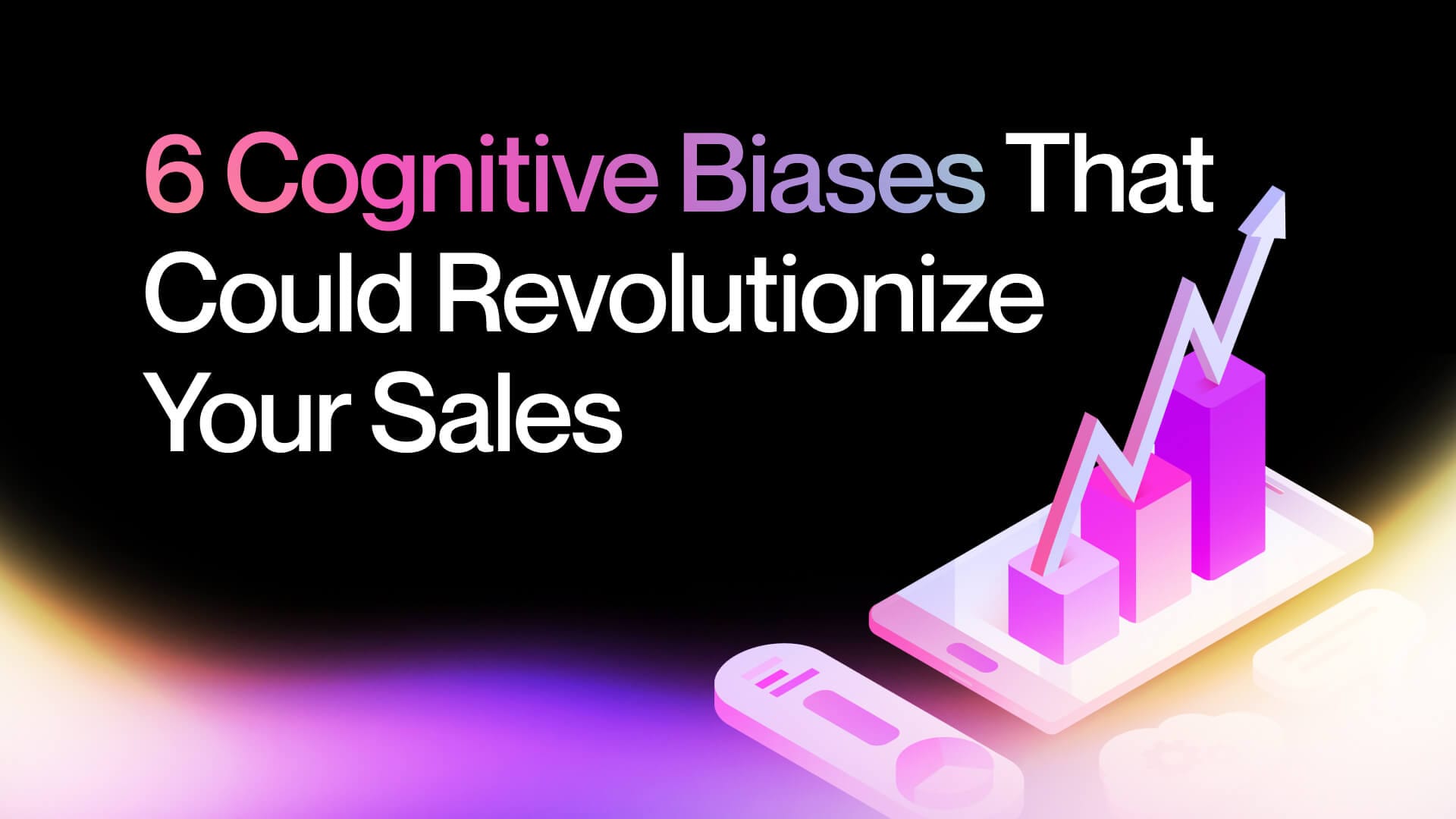
.jpg)
